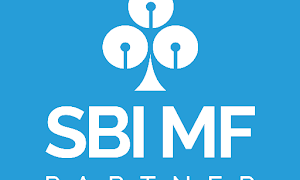Sovereign Gold Bonds (SGBs) serve as an alternative investment avenue for those looking beyond physical gold. These digital gold investment plans are introduced by the Reserve Bank of India (RBI) and are actively traded on the stock exchange market. Functioning as debt securities, SGBs are issued by the government in denominations based on grams of gold.
Also Read- Dream Big, Start Strong: Government Is Offering Loans Up To Rs 10 Lakh To Start Your Venture
Interested investors can participate in SGBs by paying the designated amount in cash through an authorised Securities and Exchange Board of India (SEBI) broker. Upon redemption, the invested amount is then deposited into the investor’s registered bank account. This process provides a secure and regulated means for individuals to invest in gold digitally through the financial framework facilitated by the RBI.
Things To Consider Before Investing in Sovereign Gold Bonds (SGBs)
1. Exit Options and Redemption Process: SGBs come with a fixed tenor of eight years, but early redemption is available after five years from the issue date, with redemption permitted on coupon payment dates. Investors can approach their bank, post office, or agent a month before the coupon payment date for convenient redemption. Partial redemptions are possible, with the minimum quantity being one gram. The redemption amount is directly credited to the bondholder’s account. SGBs are tradable on stock market exchanges if held in demat form, allowing buying and selling through demat accounts. However, the liquidity of a specific series significantly impacts the value at which the securities can be sold.
2. Taxation Implications: Understanding taxation is crucial before investing in SGBs. These government-issued bonds, designed to facilitate gold investment, offer unique tax benefits. While the capital gain on the maturity amount after eight years is tax-exempt, any sale before maturity incurs capital gain taxes based on the holding period. Tax exemption also applies to bonds purchased from the secondary market. Selling before maturity attracts short-term capital gains tax, added to taxable income. For holdings over three years, profits are treated as long-term capital gains, taxed at 20% with indexation benefits or 10% without.
The annual interest on SGBs is 2.5%, paid half-yearly, with no TDS deducted. This interest is added to taxable income, taxed according to the applicable slab.
3. Collateral Usage: SGBs can be used as collateral against loans, reducing overall credit costs and providing an incentive for individuals who traditionally rely on physical gold as financial support. Institutions accepting SGBs as collateral follow the same loan-to-value (LTV) ratio as for ordinary gold loans. Interest income is not withheld but transferred to the actual beneficiary, similar to loans against fixed deposits.
4. Secondary Market Purchases: Buying SGBs from the secondary market requires attention to certain aspects:
Discounted Prices: SGBs trade on stock exchanges at low volumes, often at a discount (3% to 7%) compared to market rates. Investors can benefit from these discounted rates by holding until maturity and avoiding selling on the stock exchange.
Low Liquidity and Buying Strategies: Due to low traded volumes (100-150 units per day), it’s advisable to avoid bulk buying to prevent sudden price spikes. Assessing the liquidity of the series before purchasing is essential, as high demand may reduce potential discounts. Investors looking to buy and resell should opt for series with high liquidity to ensure better market conditions.
These considerations provide investors with a comprehensive understanding of crucial factors before engaging in Sovereign Gold Bond investments, ensuring informed and strategic decision-making.
How To Invest In Sovereign Gold Bonds (SGBs)
Investing in Sovereign Gold Bonds is a simple process:
1. Application Form Submission: To initiate an investment in sovereign gold bonds, investors must complete an application form. These forms are available at designated post offices or can be obtained from the issuing banks. Alternatively, investors can download the form directly from the RBI website. The State Bank of India facilitates online applications through its internet portal.
2. Providing PAN (Permanent Account Number): An essential requirement for the application process is the provision of the investor’s Permanent Account Number (PAN), issued by the Department of Income Tax. Without a valid PAN, the application cannot proceed.
3. Channels for Investment: Investors have multiple channels for investing in SGBs, including branches of Scheduled Foreign and Private Banks, the Stock Holding Corporation of India, Nationalised Banks, and Designated Post Offices.
4. No Guaranteed Allocation: It’s crucial to note that applying for SGBs does not guarantee the allocation of bonds. The allotment is subject to availability and demand.
5. Online Application Benefit: For investors applying online, the issuing amount of the bonds will be INR 50 less per gram than the nominal value. This slight reduction serves as a benefit for those choosing the online application route.
Also Read– Latest SBI Fixed Deposit Rates 2024: Check How Much Return You Will Get
By following these steps and completing the necessary documentation, investors can actively participate in the sovereign gold bond market, gaining exposure to digital gold investment through a regulated and transparent process.





































